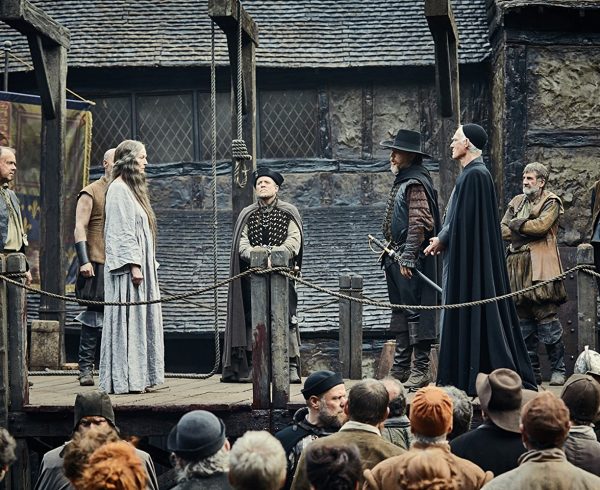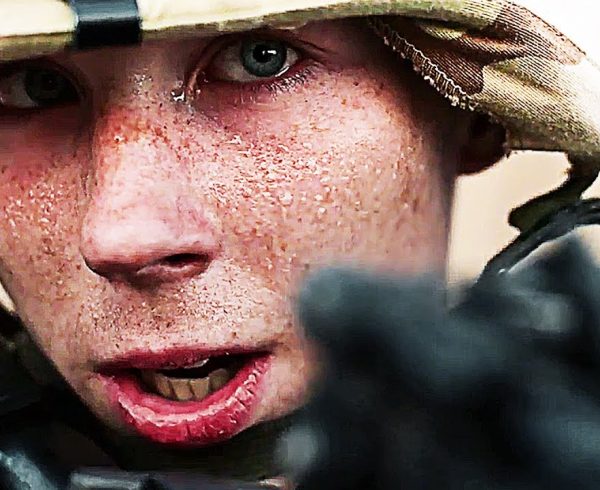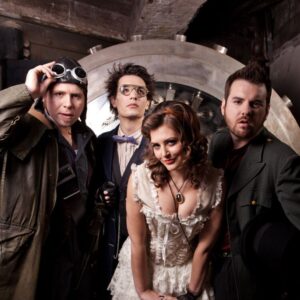Reality’s Push Back: PTSD and ‘Thank You for Your Service’
Reality is pushing back and we don’t like it. We like our wars quick, our victories decisive, and our soldiers John Wayne. That is not the reality of our contemporary nation or military.
We need to be careful about romanticizing war through the eyes of special operations specialists—Navy SEALs, Army Delta Force, and the like. Their missions are usually short and decisive and met with overwhelming technological ability and professional expertise. The real measure of warfare is the reality of the Army or Marine infantryman. This story is powerfully depicted in Thank You For Your Service (2017). It tells the story of four veterans of the 2nd Battalion, 16th Infantry Regiment returning to the vicinity of Fort Riley, Kansas, following a 15-month deployment in Iraq in 2007.
This film illustrates the lingering scars of a prolonged national investment in war. The film was written and directed by Jason Hall based on a non-fiction book by Washington Post reporter David Finkel. Hall was the Oscar-nominated writer behind the 2014 film about Chris Kyle, American Sniper.
There is something both heroic and tragic about America’s all-volunteer military. It is unquestionably the best trained, equipped, and efficient military… probably in history. And yet it is tragic because our nation’s prolonged engagement in war is basically invisible to the American populous. The new normal is open-ended wars with few defined markers of achievement or closure. We don’t even expect our modern wars to end. We don’t go to war as a nation and come home with a decisive V-Day.
No the new normal is a long-term commitment to combat necessitating multiple deployments for a mostly invisible community of military men and women and their families. We are demanding more and more on a small number of our neighbors and fellow citizens. As of January 31, there were close to 1.4 million people serving in the U.S. armed forces or .4 percent of the U.S. population. None of this would be deemed acceptable if we were still in a national draft. But what is mostly out of sight is out of mind.
It is here where reality looms its hoary head. We are silently destroying a generation of the nation’s greatest soldiers. The PTSD that these men and women suffer is a metaphor of the entire invisible strain prolonged conflict has on our national psyche. This is a reality that we must not mask with over confidence in technological solutions or disembodied national jingoism. There is an invisible human toll to warfare that most have not included in the cost/benefit calculations.
It is here where Thank You for Your Service succeeds. It is a psychological drama that makes you feel the pain of loss, the reality of survivor’s remorse, and the logic of suicide. It makes visible the invisible scars of PTSD. It allows one to feel without reducing the complexity, through over-wrought machismo, a simplistic anti-war politicization, or just bad storytelling. The film shows without telling, and unpacks a host of psychological dynamics that demand much from the audience. There are no well-known A-list stars in this film. And while it is powerfully acted, it allows us to imagine the reality of “everyman.” There is no Jason Bourne or Captain American here, just Adam, Solo, and Billy. As a film it works and yet it was a box office failure because it tells the truth so honestly and with such gentle humanity. On Friday date night, Americans cannot take this much reality.
One of my life regrets is having not served in the military. I am strongly supportive. I have lived vicariously through the lives of my former students who have served with distinction in the Navy, Army, and Marines. I have attended the military funeral of one of my favorite students who committed suicide. He is not alone, as one member of the U.S. military kills him or herself every 65 minutes or 22 per day. In airports or on the street, we may casually thank those who wear the uniform. There is more to be grateful for than we usually realize.
This film makes you see past the chants of “U-S-A, U-S-A!” or clichés about “freedom not being free” to the naked soul of the soldier standing before you. We are as a nation engaged in a soul crushing, humanity sapping, relationship-killing pattern of casual constant warfare. Pundits say that the nation is “war weary.” We don’t know of what we speak until we look past the heroic masks of these men and women who serve our nation under these conditions.
There was a draft in the Vietnam War. As a result the nation was engaged and often enraged. The film Coming Home (1978) won three Oscars. In contrast, Thank You for Your Service made back only half of its production costs. There is no easy closure on PTSD and there is no easy or happy closure to this film as well.
Just as military personnel must have the honesty to face the inner demons that they have brought home from “down range,” so too does a nation need to examine its own culpability in creating the new normal of an endless war that costs us little. For both the military and the nation, reality bites. It will always have the last word. We owe a debt to Jason Hall of reminding us of this fact.














